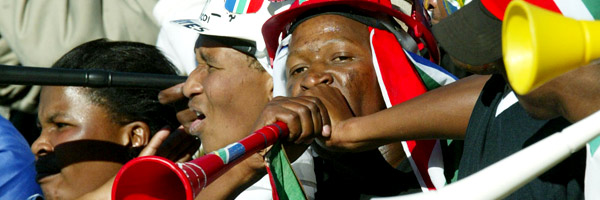
The weekly news and business magazine, The Economistpublished a story this week on South Africa’s preparations for next year’s World Cup. The magazine, not known for singing South Africa’s praises, not only concluded that South Africa is on track and that “… the doubters are so far being proved wrong.”
When, in 2004, South Africa was chosen to be the first African country to host football’s World Cup many fans around the world were doubtful. South Africa would mismanage it, they said. It would be a commercial flop. They mooted Australia as an alternative should South Africa’s organisers fail to get their act together. Five years on, the doubts have diminished as new stadiums rise up across the country. Indeed, next year’s tournament may turn out to be the most profitable yet, thanks to the sale of broadcasting rights …
Traditionally regarded as a “black” sport in South Africa, with whites preferring rugby and cricket, football has long suffered from a lack of investment. But this is changing. South Africa’s selection to host next year’s World Cup has at last brought big money into the game.
About 12 billion rand ($1.48 billion) is being spent on nine stadiums (four of them used for the Confederations Cup), with billions more to build or improve roads and airports. And the country is to get its first high-speed railway, linking the main airport with Pretoria, the capital, and Johannesburg. Predictably, this had led to grumbles that such vast sums would have been better spent on helping the poor.
But most South Africans are proud that their country is hosting so big an event, hoping it will polish its image abroad and help unite its people, as winning the rugby World Cup on home soil did in 1995. In any case, the spending should provide a welcome fiscal boost as the country experiences its first recession in 17 years. One study reckons 500,000 cup-related jobs will be created. The biggest worry remains crime. In a country with some 50 murders and 99 reported rapes every day, the extra 41,000 police that will be deployed for the event will have more to worry about than the noisy blast of the vuvuzela.